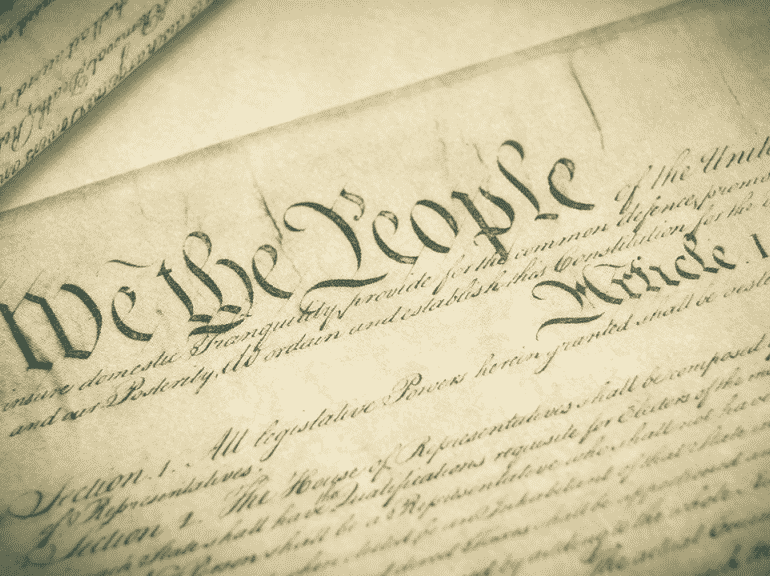
The Constitution isn’t Absolute?
By: Mike Maharrey
Arguing that “high-caliber” weapons should be federally banned, President Joe Biden claimed, “Remember, the Constitution was never absolute.”
Biden was merely advancing the popular notion of a “living breathing Constitution.” According to proponents of this theory, the founders “couldn’t have imagined” all of the changes that would happen over time, such as the development of high-powered, semi-automatic weapons. Therefore, the Constitution must evolve and change with the times.
The founders were smart people. I’m sure they imagined that technology and society would evolve over time. What the founders certainly imagined is a scenario where the government can change the limits on its own power and authority on its own whim. Because that’s a big reason they fought a long, bloody war to free themselves from Great Britain.
That said, Biden wasn’t entirely wrong. The Constitution wasn’t intended to be “absolute.” The founders did, in fact, recognize that changes would be necessary as times changed.
And that’s why they included an amendment process.
We can change the Constitution, but it requires an act of the people of the states. The president can’t do it. Congress can’t do it.
Congress can propose amendments, or state conventions can propose them. But amendments must be ratified by the people in 3/4 of the states. As Robert Livingston put it during the New York ratifying convention, “All power is derived from the people”
This wasn’t what Biden had in mind. He wants to change the Constitution by government edict. No relevant figure in the founding generation would have accepted this constitutional theory.
In fact, the American colonists fought the Revolution to extricate themselves from a political system based on a “living breathing” constitution. In the British system, the government was sovereign, not the people. The government itself defined its own powers and could expand them of its own accord.
This is precisely the kind of government Joe Biden and other proponents of the “living breathing” Constitution yearn for. But as James Madison argued, there can be no security for a consistent and stable government if the people in power can willy-nilly change the Constitution to suit their political agenda.
The Constitution was grounded in contract law.
You can’t have a living breathing contract.
Contractual provisions have a fixed meaning. When you sign on the dotted line, you expect those provisions to remain constant over time. When disagreements come up, both parties argue their position based on how they understood the contract when they signed it. Nobody would accept a banker saying, “Well, I know the mortgage meant so-and-so, but now it means something different. It’s a living breathing mortgage.”
That’s absurd.
And a living breathing Constitution is no less absurd.
The entire point of a written Constitution was to limit government power. You can’t limit government power when government officials can unilaterally decide the extent of their own powers and then expand those powers whenever they see fit. This is why Thomas Jefferson proclaimed, “On every question of construction let us carry ourselves back to the time when the Constitution was adopted, recollect the spirit manifested in the debates, and instead of trying what meaning may be squeezed out of the text, or intended against it, conform to the probable one in which it was passed.”
James Wilson, a signer of the Constitution and one of its chief proponents during the ratification debate, summed it up best, “in our governments, the supreme, absolute, and uncontrollable power remains in the people. As our constitutions are superiour to our legislatures; so the people are superiour to our constitutions.”
Ultimately, government doesn’t make the rules for the people. The people make the rules for government.
Biden would argue that the amendment process is too difficult. But this is a feature of the constitutional system, not a flaw. It was supposed to be difficult for the federal government to expand its power and authority. There has to be a broad consensus among the people of the states.
The rule of law requires consistency. Otherwise, government becomes arbitrary. When the limits on government power become subject to reinterpretation by the government itself, it becomes limitless in power and authority. Politicians like Joe Biden would love for this to be the case. But it never works out well for the average person.